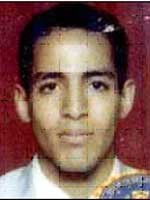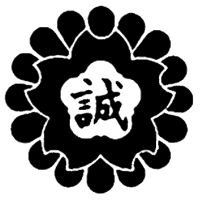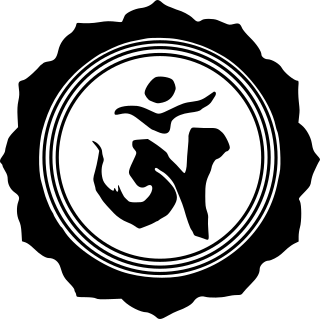Related Research Articles

Shoko Asahara, born Chizuo Matsumoto, was the founder and leader of the Japanese doomsday cult known as Aum Shinrikyo. He was convicted of masterminding the 1995 sarin gas attack on the Tokyo subway, and was also involved in several other crimes. Asahara was sentenced to death in 2004, and his final appeal failed in 2011. In June 2012, his execution was postponed due to further arrests of Aum members. He was ultimately executed along with other senior members of Aum Shinrikyo on July 6, 2018.

Jemaah Islamiyah was a Southeast Asian Islamist militant group based in Indonesia, which was dedicated to the establishment of an Islamic state in Southeast Asia. On 25 October 2002, immediately following the JI-perpetrated 2002 Bali bombings, JI was added to the UN Security Council Resolution 1267.

Fazul Abdullah Mohammed was a Comorian-Kenyan member of al-Qaeda, and the leader of its presence in East Africa. Mohammed was born in Moroni, Comoros Islands and had Kenyan as well as Comorian citizenship. He spoke French, Swahili, Arabic, English, and Comorian.
Yoshiaki Tsutsumi is a Japanese businessman. During the Japanese economic bubble, Forbes listed Tsutsumi as the wealthiest person in the world during 1987–94 due to his extensive real estate investments through the Seibu Corporation, which he controlled. In 1987, he had a net worth of $20 billion. However, as a result of a series of scandals and his 2005 arrest, his net worth has fallen to such an extent that he was taken off the Forbes list of billionaires in 2007.
Sheikh Ahmed Salim Swedan was a fugitive wanted in the United States as a participant in the 1998 U.S. embassy bombings. He was alleged to have purchased the Toyota and Nissan trucks used in the attacks, flying out of Nairobi to Karachi, Pakistan five days before the assault was launched. Swedan was on the FBI Most Wanted Terrorists list since its inception in October 2001. He was born in Mombasa, Kenya.

Saleh Ali Saleh Nabhan also known as Abu Yusuf, was an operative of al-Qaeda in Somalia. He was listed on the FBI's third major "wanted" list, the FBI Seeking Information – War on Terrorism list, for his association with multiple attacks in Kenya in 2002, as well as his possible involvement in the 1998 United States embassy bombings, in which over 250 people lost their lives.
Rashid Rauf was an alleged Al-Qaeda operative. He was a dual citizen of Britain and Pakistan who was arrested in Bhawalpur, Pakistan in connection with the 2006 transatlantic aircraft plot in August 2006, a day before some arrests were made in Britain. Pakistani Interior Minister Aftab Ahmad Khan Sherpao claimed that "he is an al Qaeda operative with linkages in Afghanistan". He was identified as one of the ringleaders of the alleged plot. In December 2006, the anti-terrorism court in Rawalpindi found no evidence that he had been involved in terrorist activities, and his charges were downgraded to forgery and possession of explosives. A 2022 article offers an assessment of the impact of Operation Overt and refers to Rauf's alleged role

Tetsuya Shiroo was the former leader of the Suishin-kai, a Nagasaki-based yakuza group affiliated with the Yamaguchi-gumi, the largest yakuza organization in Japan.

The Public Security Intelligence Agency is the domestic intelligence agency of Japan. It is administered by the Ministry of Justice and is tasked with internal security and espionage against threats to Japanese national security based on the Subversive Activities Prevention Act and the Act Regarding the Control of Organizations Which Committed Indiscriminate Mass Murder. Any investigation conducted by the agency needs to go through the Public Security Examination Commission (PSEC) in order to determine if there is a justification to investigate and clamp down on an organization's activities.

The Akihabara massacre was an incident of mass murder that took place on 8 June 2008, in the Akihabara shopping quarter in Chiyoda, Tokyo, Japan. The perpetrator, 25-year-old Tomohiro Katō of Susono, Shizuoka, drove into a crowd with a rented truck, initially killing three people and injuring two; he then stabbed at least twelve people using a dagger, killing four other people and injuring eight.
An Egyptian resident of British Columbia, Essam Hafez Mohammed Marzouk arrived in Vancouver, British Columbia, Canada in 1993 as a refugee fleeing persecution in Pakistan. He was one of 14 people subjected to extraordinary rendition by the CIA prior to the 2001 declaration of a war on terror. Marzouk was the contact point for a bin Laden terrorist cell in Canada.
Ahmad Salama Mabruk, known as Abu Faraj al-Masri, was a senior leader in the Syrian militant group Jabhat Fateh al-Sham and was previously a leader in Jabhat al-Nusra and the Egyptian Islamic Jihad militant groups. He was present alongside Abu Muhammad al-Julani at the announcement of the creation of Jabhat Fateh al-Sham. He was one of 14 people subjected to extraordinary rendition by the CIA before the 2001 declaration of a War on Terror.
Rie Isogai was a 31-year-old Japanese office clerk who was robbed and murdered in Aichi Prefecture on the night of 24 August 2007 by three men who became acquainted through an underground message board. Because the three men met on an underground website, the case is frequently called the Dark Site Murder in Japan, "dark site" being the Japanese term for underground websites. Despite Japan's death penalty not normally being used in cases involving a single murder, Isogai's mother launched a petition to have the three killers face the death penalty; one was sentenced to death on 18 March 2009, while the other two were sentenced to life in prison on 13 April 2011.
The 2009 New York City Subway and United Kingdom plot was a plan to bomb the New York City Subway as well as a target in the United Kingdom.

The Kyushu Seido-kai was a yakuza organization based in Fukuoka Prefecture on the Kyushu island of Japan, with an estimated 150 active members. Headquartered in the southern Fukuoka region of Omuta, the Kyushu Seido-kai maintains its offices in five other prefectures including Tokyo.

Aleph, better known by their former name Aum Shinrikyo, is a Japanese new religious movement and doomsday cult founded by Shoko Asahara in 1987. It carried out the deadly Tokyo subway sarin attack in 1995 and was found to have been responsible for the Matsumoto sarin attack the previous year.
Attacks by Islamist extremists in Bangladesh took place during a period of turbulence in Bangladesh between 2013 and 2016 when a number of secularist and atheist writers, bloggers, and publishers in Bangladesh; foreigners; homosexuals; and religious minorities such as Hindus, Buddhists, Christians and Ahmadis who were seen as having offended Islam and Muhammad were attacked in retaliation, with many killed by Muslim extremists. By 2 July 2016, a total of 48 people, including 20 foreign nationals, had been killed in such attacks. These attacks were largely blamed on extremist groups such as Ansarullah Bangla Team and Islamic State of Iraq and Syria. The Bangladeshi government was criticized for its response to the attacks, which included charging and jailing some of the secularist bloggers for allegedly defaming some religious groups; or hurting the religious sentiments of different religious groups; or urging the bloggers to flee overseas. This strategy was seen by some as pandering to hard line elements within Bangladesh's Muslim majority population. About 89% of the population in Bangladesh is Sunni Muslim. The government's eventual crackdown in June 2016 was also criticized for its heavy-handedness, as more than 11,000 people were arrested in a little more than a week.
Hayato Imai is a Japanese serial killer who murdered three elderly people at a nursing home in Saiwai-ku, Kawasaki between November and December 2014. A former emergency medical technician, he was sentenced to death, and is currently trying to appeal said sentence.

Yasutoshi Kamata, known as The Osaka Ripper, was a Japanese serial killer responsible for the murder and dismemberment of four women and one girl in Osaka between 1985 and 1994. The case was designated by the National Police Agency as "Metropolitan Designated Case No. 122".
Tsubasa Party is a political party in Japan founded in 2019. The party garnered nationwide controversy during the 2024 by-elections in the Tokyo 15th district for alleged election interference and sabotage, which led to the arrests of party leaders Kurokawa and Nemoto on suspicions of violating Japanese election laws.
References
- 1 2 3 4 5 "Alleged al-Qaeda link seeks vindication; Bangladeshi wants apology, claims he was falsely accused by police, press", The Japan Times, 2 April 2005, retrieved 15 January 2008
- 1 2 3 "Antiterrorism drive wrecks Muslim's life", The Daily Yomiuri; Asia Africa Intelligence Wire, 18 December 2004, retrieved 15 January 2008
- 1 2 3 4 Parry, Richard Lloyd (26 May 2004), "Japan makes first al-Qaeda arrests in dawn raids", The Times, London, retrieved 15 January 2008[ dead link ]
- 1 2 3 "Massive Fund Transfers from Japan to al-Qaeda Suspected", Jiji Press; Asia Africa Intelligence Wire, 27 May 2004, retrieved 15 January 2008
- 1 2 3 4 Montgomery, Nancy (29 May 2004), "Reports place al-Qaida suspect on Yokosuka Naval Base", Stars and Stripes, retrieved 15 January 2008
- ↑ "Man held in terror probe freed after paying fine", The Daily Yomiuri; Asia Africa Intelligence Wire, 9 July 2004, retrieved 15 January 2008
- ↑ "Bangladeshi sues Kyodo for libel", The Japan Times, 6 October 2005, archived from the original on 13 September 2006, retrieved 15 January 2008
- ↑ "Sankei newspaper ordered to compensate foreigner over Al-Qaeda slur", Mainichi Shimbun, 11 December 2007, archived from the original on 13 December 2007, retrieved 15 January 2008